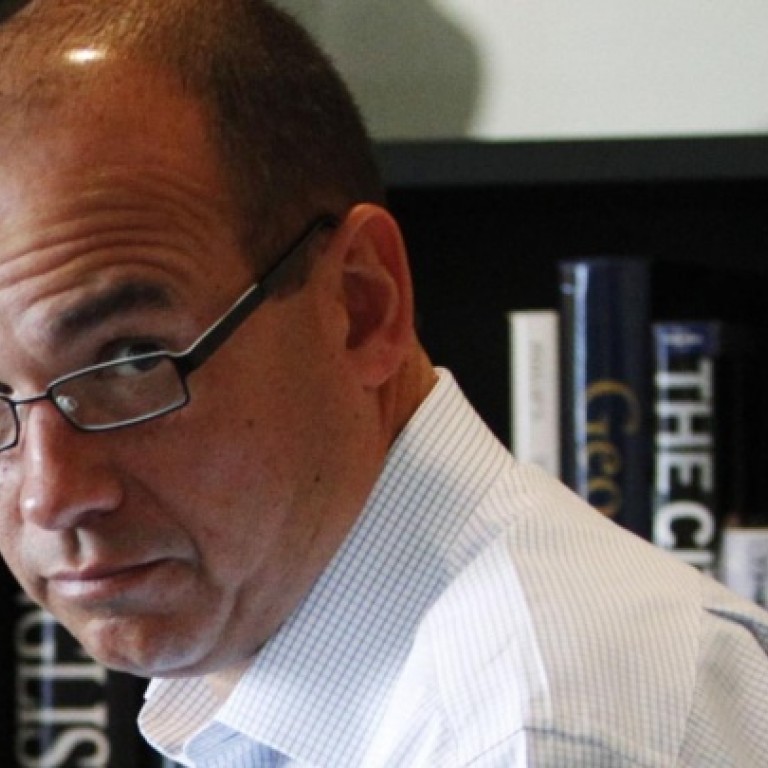
Whistle-blower calls for caution over Japanese deals
Former Olympus chief executive advises Chinese companies to seek full asset control to avoid being caught in accounting fraud
Michael Woodford, who made a name as one of the world's most senior corporate executives to turn whistle-blower after the Olympus scandal in 2011, has warned Chinese business chiefs to be wary of investing in Japan.
Woodford told the that only full control of an asset would give investors access to the information they would need to avoid becoming embroiled in an accounting fraud like the US$1.7 billion scandal he uncovered as president and chief executive of Japanese camera, optics and medical equipment maker Olympus.
"The [business] culture in Japan is not to expose or criticise, and just maintain the status quo," said Woodford, who was fired by Olympus shortly after he was named the top executive of the company before exposing the fraud and generating headlines worldwide.
Chinese firms betting on a turnaround in the world's No 3 economy have stepped up investments in Japan, often through mergers and acquisitions of Japanese assets or joint ventures with domestic partners.
China's top computer maker Lenovo has acquired assets from NEC, Japan's electronic industry leader, and Haier Group bought Sanyo's white goods business.
Earlier this year, Japanese media reported that NEC was in talks to sell its struggling mobile phone business to Lenovo, which has ambitions to replicate the success of Apple and Samsung in the smartphone market.
"If you can control the asset, which is usually not an easy thing to do in Japan, it may be better. If it is just the minority stake, you have to be much more cautious," said Woodford, speaking on the sidelines of the annual conference of the CFA Institute in Singapore.
Citing his personal experience with Olympus as an example, Woodford, who now runs his own consultancy advising on takeovers and corporate frauds, said it would be very difficult for a foreign entity in Japan to deal with corporate fraud, particularly if it was related to a major listed company.
"After all of that (the Olympus scandal), the institutional investors including the main banks and the insurance companies in Japan wouldn't utter one word of criticism about the board [of Olympus]. If that was in Hong Kong, Singapore, New York or Paris, they would be definitely forced to act. But in Japan, even the media didn't ask them. No one asked them," he said.
The Olympus scandal was first reported by a little-known local Japanese magazine but major Japanese media outlets did not quickly pick up the report and follow up until the news was widely reported by the international press.
Woodford also said Chinese firms were becoming more entrepreneurial at a time when innovation was becoming ever more critical in international business.
"China has a much more vibrant and entrepreneurial culture now. In China, everybody wants to be successful or rich," he said.

